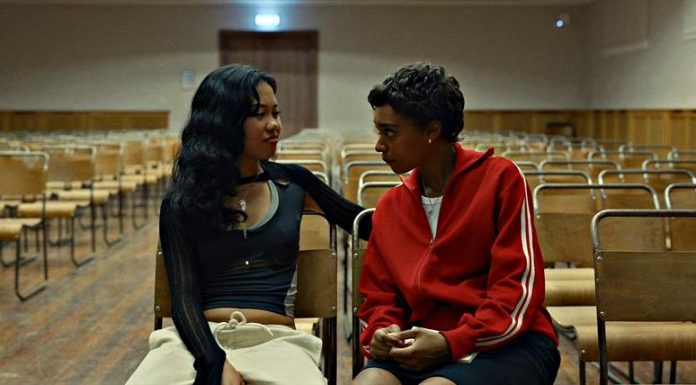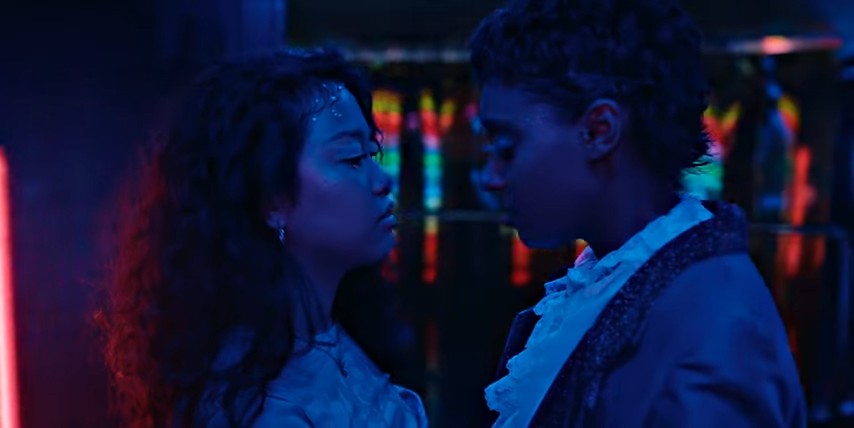“Everything Now,” a Netflix teen comedy-drama that explores the complexities of adolescence, recovery, and the quest for normalcy, welcomes you to its engrossing world. This eight-episode series, which was created by the gifted Ripley Parker, centers on the transformative journey of 16-year-old Mia Polanco (Sophie Wilde) as she faces the difficulties of recovering from bulimia and anorexia.
The story takes place in North London. After spending a long time at a clinic, Mia comes home to discover that her friends, Becky, Will, and Cam, have gone on. Mia sets out on a mission to make up for lost time, gathering her friends and a bucket list to help her through the challenging times of adolescence as she struggles to fit back into her former life.
The show deftly handles the delicate subject of eating disorders by giving Mia a complex portrayal as opposed to limiting her to clichés. Mia’s journey is about more than just her illness; it’s also about resilience, self-discovery, and the challenges of adolescence. The program does a good job of sensitively and morally conveying Mia’s tale while delving deeply and nuancedly into the realities of eating disorders.
Everything Now: Carli and Mia’s Relationship:
“Everything Now” revolves around the dynamic relationship that develops between Mia and the mysterious Carli (TikTok star Jessie Mae Alonzo). When Mia goes back to school, she meets Carli, a free-spirited girl who immediately captures Mia’s heart. The subtleties of their relationship are deftly explored in the series, which also cleverly ties them into Mia’s continuous healing.
Mia’s personal journey’s complexity impedes her initial attempts to reach Carli. The idea of dating Carli proves to be both a source of anxiety and a ray of hope for Mia as she struggles with relationships, friendships, and her eating issues.
Mia really wants to connect with Carli, but there are a lot of obstacles in their way. An additional layer of difficulty is added when Mia learns that Carli is aware of her eating condition. This causes self-consciousness and tense encounters. The fragility of Mia’s recovery and the effects of her decisions on her relationships are deftly depicted in the series.
The relationship’s high point occurs at a wild party when Mia, in a vulnerable moment, gives Carli a kiss. This crucial incident causes Mia and Cam’s friendship to fall apart and paves the way for a more in-depth examination of Mia’s challenges. The dissolution of Mia’s friend circle exacerbates her life’s growing problems and drives her closer to a relapse.
[Netflix] Everything Now: Did ‘Mia and Carli’ Work Out?
As the show goes on, Mia’s journey takes some surprising detours, which finally bring her and Carli to a crucial turning point. Mia makes a genuine effort to make up and make amends, but Carli reveals the heartbreaking realization that they are not meant to be together. Although Carli has a great affection for Mia, she is aware of the risk that their connection will turn into an outlet for Mia’s fixation.
Carli is aware of the vulnerability of relationships based on illusions because she has a personal experience of trying to save people. Despite being sincere, Mia’s infatuation for Carli could get in the way of her recuperation. Knowing the difficulties, Carli admits that they will never be able to live in one other’s lives unless they are able to go beyond being a romantic idea or a fix for one another.
The show highlights the fact that recovery is not a straight line with its honest depiction of Mia’s hardships. When Mia has to consider going back to a clinic, her journey takes a drastic turn, and she flees for her final day of freedom. In a moving scene, Carli helps Mia face her anxieties and asks Dr. Nell (Stephen Fry) for assistance.
Mia ultimately decides to continue her outpatient treatment process rather than going back to the facility. But when she tries to patch things up with Carli, the truth hits her hard; although Carli admits their connection is deep, she is adamant that they cannot be together. Despite the ups and downs along the way, Mia comes to the idea that relationships—especially those that are entwined with the difficulties of mental health—need more than passing dreams.
“Everything Now” is a remarkable examination of youth, healing, and the complexities of relationships. The show deftly handles the difficulties that its characters encounter, and Mia’s path provides a potent prism through which the wider range of adolescent experiences is examined. The show respectfully and sensitively addresses a variety of themes, including bullying and body image, while providing viewers with a distinct and genuine representation of the complex, messy, painful, and happy parts of adolescence. The narrative of Mia becomes a monument to the human spirit’s tenacity and the possibility of hope even in the face of overwhelming adversity as it progresses.








